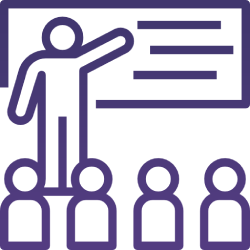After our ISTQB® Advanced Technical Test Analyst training course, you should be able to accomplish the following objectives:
After our ISTQB® Advanced Technical Test Analyst training course, you should be able to use and put into practice the following learning objectives:
Our ISTQB® Advanced Certificate For Technical Test Analysts training course is principally aimed at Test Practitioners who have achieved an advanced point in their careers in Software Testing and are expecting to be actively involved in the analysis, specification, design and execution aspects of Software Testing, and who want to increase their knowledge and skills.
Our ISTQB® Advanced Certificate For Technical Test Analysts training course is also aimed at:
It is also appropriate for anyone who wants a deeper understanding of Software Testing:
Our ISTQB® Advanced Technical Test Analyst training course includes the following:
The entry-level requirement for our ISTQB® Advanced Technical Test Analyst training course is that you must hold the ISTQB® Foundation certificate.
There is no recommended reading associated with our ISTQB® Advanced Technical Test Analyst training course.
ISTQB® Advanced Certificate For Technical Test Analysts Examination:
Whenever you are ready for the next step in certification, here are the most common follow on courses after the ISTQB® Advanced Technical Test Analyst training course.
Founded in 2002, ISTQB® (International Software Testing Qualifications Board) is a not-for-profit association comprising 47 national boards (including the UKTB) covering 71 countries worldwide.
ISTQB® has defined the Advanced certification as part of their ‘Certified Tester’ scheme that, with over 240,000 certifications, has become the de-facto worldwide standard for software testing qualifications.

All of our trainers have achieved exceptionally high delegate pass rates for accredited examinations for all our courses. We also offer complimentary pre and post-course support for any questions you may have.

We try and be as flexible as we can and accommodate your needs. We can swap delegates at any time with no charge. We can also create bespoke content should this be required.

We specialise in IT Service and Project Management. All of our Trainers and Consultants have considerable years of hands-on experience in IT Service / Project Management, working across a wide number of industry sectors.

Our training, sales and admin staff are all professional, helpful, friendly and approachable. We believe in providing excellent customer service. You will always have a dedicated friendly Account Manager
INFORMATION
There are currently no course dates that match your selected filter options. Please try another filter or contact one of our dedicated account managers on +44(0)1539 736 828 to discuss your requirements. Thanks.
Our ISTQB® Advanced Technical Test Analyst training course is delivered over three days.